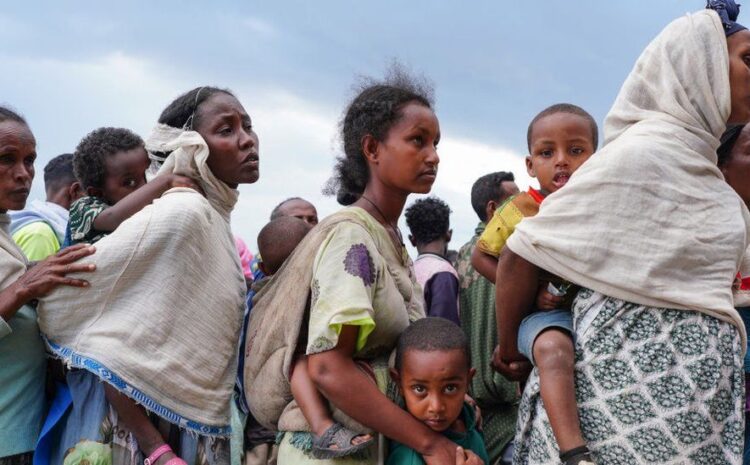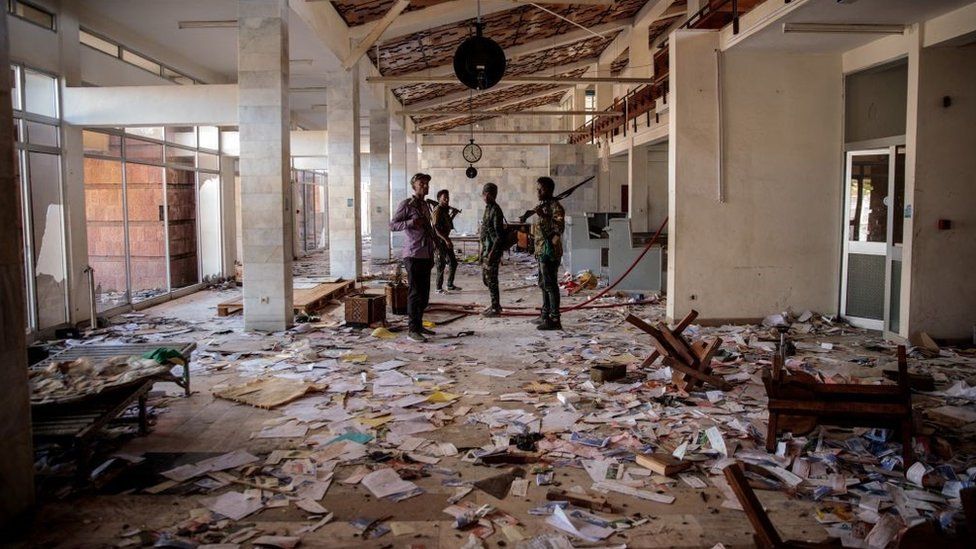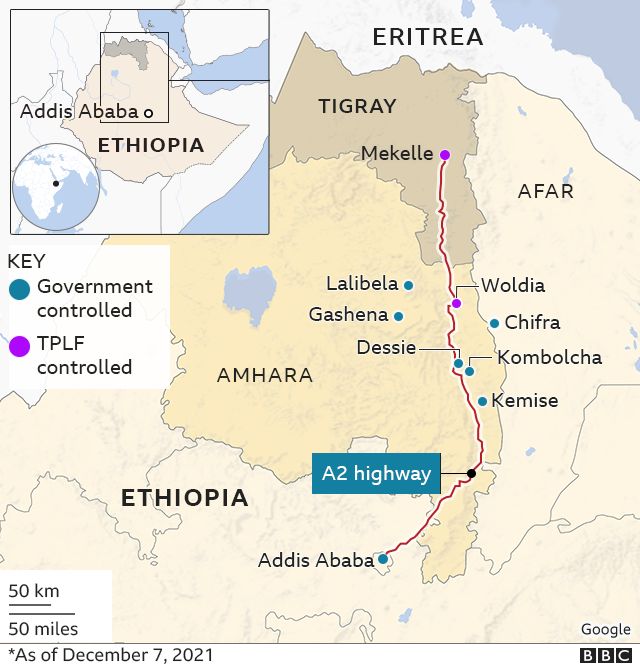
GETTY IMAGES Image caption, More than nine million people in northern Ethiopia are in need of critical food supplies, the UN says
Looters from rebel Tigrayan forces held aid staff at gunpoint in the town of Kombolcha, the United Nations said.
They stole large quantities of essential food supplies – including some for malnourished children.
Northern Ethiopia is facing mass starvation amid an ongoing civil war between Tigrayan and government forces.
After more than a year of fighting, more than nine million people are in need of critical food supplies in the Tigray, Amhara and Afar regions, the UN says.
A spokesman for the UN, which runs the WFP, said its staff there had faced “extreme intimidation” during days of looting in the industrial hub of Kombolcha in Amhara.
The spokesman also accused military personnel of commandeering three WFP humanitarian trucks and using them for their own purposes.
The Ethiopian government recently announced that it had recaptured the towns from the Tigray rebels. But the rebels said the army had only recovered areas they had abandoned.
- EXPLAINER: Ethiopia’s Tigray war – and how it erupted
- ANALYSIS: Why is desperately needed aid not reaching Tigray?
- VIEWPOINT: Why Tigray is starving, but no famine declared
- AFRICA LIVE: Updates on this and other stories
The government has also retaken control of Lalibela, a Unesco world heritage site famous for its 13th Century rock-hewn churches.
Residents told AFP news agency that banks, government offices, the airport and hospital had been looted by rebels.
 IMAGE SOURCE, AFP
IMAGE SOURCE, AFPDoctors arranged for medicine to be brought on donkeys from a nearby town to treat patients with chronic conditions like HIV and tuberculosis, residents were quoted as saying.
There had also been a shortage of food, which left about 290 children malnourished. Six of them died, AFP reported.
“We couldn’t treat them because the supplements had been looted by the TPLF [Tigray People’s Liberation Front],” social worker Temesgen Muche told the news agency.
The conflict has killed thousands of people, displaced more than two million and driven hundreds of thousands into famine-like conditions, according to UN figures.
The UN has encountered huge obstacles delivering aid to the affected areas, while there has been a communications blackout in Tigray so it is impossible to know the true scale of the suffering.
Nearly 200 children under the age of five died of starvation in 14 hospitals in Tigray between late June and October, according to the AFP news agency quoting data collected by doctors and researchers in Tigray.
Even more alarming, up to 50% of pregnant and breastfeeding women screened in Amhara and Tigray were also found to be malnourished, it added.

Fighting broke out over a year ago between government troops and the TPLF, which dominated Ethiopia for decades and now controls most of Tigray.
Prime Minister Abiy Ahmed sent troops into the Tigray region to quash the TPLF after he said it had attacked army camps.
But in June this year, the rebels mounted a comeback, recapturing most of Tigray and advancing into the neighbouring regions of Amhara and Afar.
US State Department spokesman Ned Price said the humanitarian catastrophe in northern Ethiopia remained an “absolute priority” for the United States.
He called on both sides to negotiate an end to the conflict and allow aid to reach those in need.

Aid suspension deepens a worsening crisis
By Emmanuel Igunza, BBC News, Nairobi
This is yet another example of the dangerous environment humanitarian workers have to operate under in Ethiopia.
Since the beginning of the conflict a year ago, 28 humanitarians have been killed, making the country one of the most dangerous for aid workers, according to the UN.
Then there’s the red tape. For months now, aid agencies have been pleading with the Ethiopian government to cut bureaucracy and allow more humanitarian access.
But so far only a fraction of what is urgently needed is getting to people in the Amhara, Afar and Tigray regions. At least 100 trucks are required in these regions daily – but only a trickle is arriving there despite millions starving.
Aid agencies are also facing fuel and cash shortages, which they need to continue operations.
This suspension will no doubt exacerbate the worsening humanitarian crisis.
Already 400,000 people are living in famine-like conditions and if the forced suspension is prolonged, this will lead to a humanitarian catastrophe.
